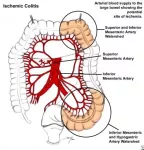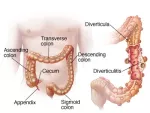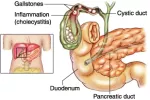
Ulcerative colitis is an inflammatory bowel disease (IBD) that causes long-lasting inflammation and ulcers (sores) in your digestive tract. Ulcerative colitis affects the innermost lining of your large intestine (colon) and rectum. Symptoms usually develop over time, rather than suddenly.
Ulcerative colitis can be debilitating and sometimes can lead to life-threatening complications. While it has no known cure, treatment can greatly reduce signs and symptoms of the disease and even bring about long-term remission.
Symptoms of the ulcerative colitis
Ulcerative colitis symptoms can vary, depending on the severity of inflammation and where it occurs. Therefore, doctors often classify ulcerative colitis according to its location.
You may have the following signs and symptoms, depending on which part of the colon is inflamed:
- Diarrhea, often with blood or pus
- Abdominal pain and cramping
- Rectal pain
- Rectal bleeding — passing small amount of blood with stool
- Urgency to defecate
- Inability to defecate despite urgency
- Weight loss
- Fatigue
- Fever
- In children, failure to grow
Most people with ulcerative colitis have mild to moderate symptoms. The course of ulcerative colitis may vary, with some people having long periods of remission.
Types of the ulcerative colitis
Ulcerative colitis is classified according to how much of your colon is affected. The condition can be mild and limited to the rectum (ulcerative proctitis). Or it can affect additional parts of your colon, generally with more severe symptoms. People who develop ulcerative colitis at a younger age are more likely to have severe symptoms.
When to see a doctor
See your doctor if you experience a persistent change in your bowel habits or if you have signs and symptoms such as:
- Abdominal pain
- Blood in your stool
- Ongoing diarrhea that doesn\'t respond to over-the-counter medications
- Diarrhea that awakens you from sleep
- An unexplained fever lasting more than a day or two
Although ulcerative colitis usually isn\'t fatal, it\'s a serious disease that, in some cases, may cause life-threatening complications.
Causes of the ulcerative colitis
The exact cause of ulcerative colitis remains unknown. Previously, diet and stress were suspected, but now doctors know that these factors may aggravate but don\'t cause ulcerative colitis.
One possible cause is an immune system malfunction. When your immune system tries to fight off an invading virus or bacterium, an abnormal immune response causes the immune system to attack the cells in the digestive tract, too.
Heredity also seems to play a role in that ulcerative colitis is more common in people who have family members with the disease. However, most people with ulcerative colitis don\'t have this family history.
Risk factors
Ulcerative colitis affects about the same number of women and men. Risk factors may include:
- Age. Ulcerative colitis usually begins before the age of 30. But, it can occur at any age, and some people may not develop the disease until after age 60.
- Race or ethnicity. Although whites have the highest risk of the disease, it can occur in any race. If you\'re of Ashkenazi Jewish descent, your risk is even higher.
- Family history. You\'re at higher risk if you have a close relative, such as a parent, sibling or child, with the disease.
- Isotretinoin use. Isotretinoin (Amnesteem, Claravis, Sotret; formerly Accutane) is a medication sometimes used to treat scarring cystic acne or acne. Some studies suggest it is a risk factor for IBD, but a clear association between ulcerative colitis and isotretinoin has not been established.
Tests and diagnosis of the ulcerative colitis
Your doctor will likely diagnose ulcerative colitis after ruling out other possible causes for your signs and symptoms. To help confirm a diagnosis of ulcerative colitis, you may have one or more of the following tests and procedures:
- Blood tests. Your doctor may suggest blood tests to check for anemia — a condition in which there aren\'t enough red blood cells to carry adequate oxygen to your tissues — or to check for signs of infection.
- Stool sample. White blood cells in your stool can indicate ulcerative colitis. A stool sample can also help rule out other disorders, such as infections caused by bacteria, viruses and parasites.
- Colonoscopy. This exam allows your doctor to view your entire colon using a thin, flexible, lighted tube with an attached camera. During the procedure, your doctor can also take small samples of tissue (biopsy) for laboratory analysis. Sometimes a tissue sample can help confirm a diagnosis.
- Flexible sigmoidoscopy. Your doctor uses a slender, flexible, lighted tube to examine the sigmoid, the last portion of your colon. If your colon is severely inflamed, your doctor may perform this test instead of a full colonoscopy.
- X-ray. If you have severe symptoms, your doctor may use a standard X-ray of your abdominal area to rule out serious complications, such as a perforated colon.
- CT scan. A CT scan of your abdomen or pelvis may be performed if your doctor suspects a complication from ulcerative colitis or inflammation of the small intestine. A CT scan may also reveal how much of the colon is inflamed.










